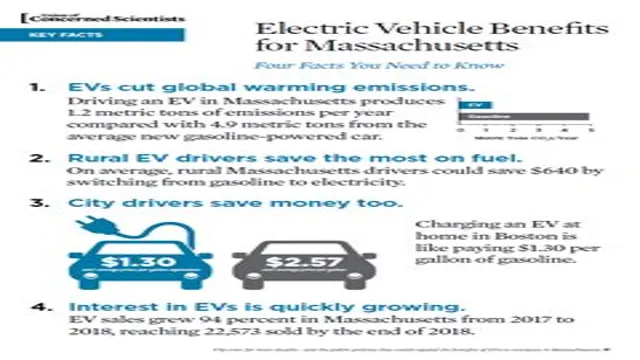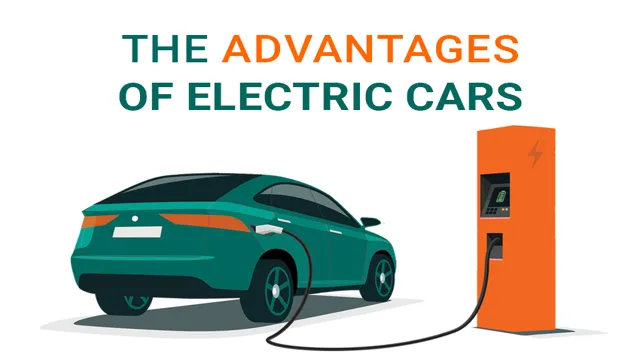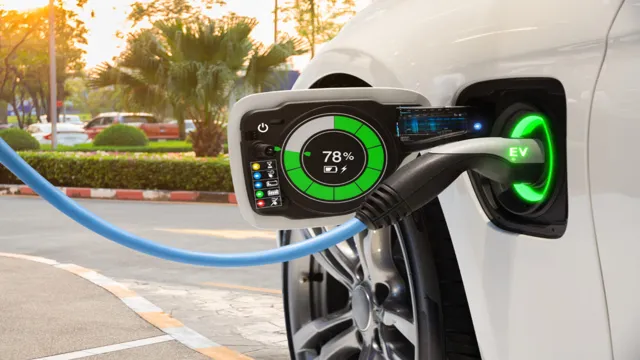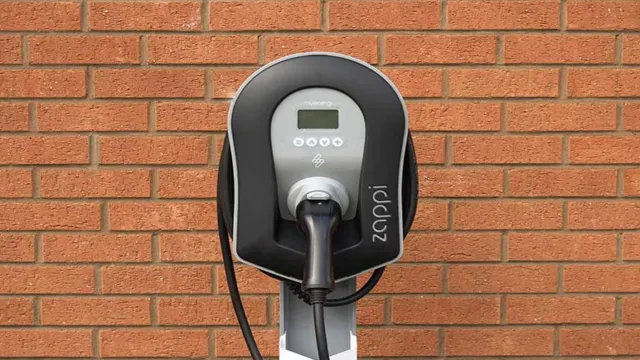Charging Towards a Greener Future: The Environmental Benefits of Electric Cars
Electric cars are quickly becoming one of the most exciting and innovative ways to get around. While the idea of electric cars may still be new to some people, it’s important to remember that they offer a wide range of benefits for the environment. By using electricity instead of gasoline, electric cars offer a sustainable solution that reduces harmful emissions and improves air quality.
If you’re curious about how electric cars help the environment, keep reading to discover the top benefits that they provide.
Zero Emissions
If you’re concerned about the environment, an electric car is an excellent choice. Firstly, electric cars emit zero emissions, meaning they produce no harmful greenhouse gases that are detrimental to air quality. This is because they are powered by electricity, so they don’t burn fuel.
Secondly, electric cars are much more efficient than gas-powered vehicles since their engines convert up to 80% of their energy to forward motion. Gas-powered cars, on the other hand, only convert about 20% to 30% of their energy to motion, with the rest lost as heat and friction. Finally, electric cars generate almost no noise, which is great for urban environments where noise pollution is a problem.
Overall, electric cars offer a range of benefits for the environment, and they’re an excellent way to lower your carbon footprint and help combat climate change.
Eliminates air pollution from exhaust fumes
Zero emissions is an essential concept in today’s world to protect our environment. In this regard, the elimination of air pollution caused by exhaust fumes is paramount. The use of vehicles powered by electric batteries has contributed significantly to achieving this goal.
Unlike traditional cars that utilize gasoline or diesel, electric cars produce zero emissions. This means that they do not emit any pollutants that may harm the environment or human beings. You can enjoy a smooth and noiseless ride while contributing to a sustainable future.
This technology has revolutionized the transportation industry. With the adoption of electric cars, we can reduce the carbon footprint and ensure a cleaner and healthier planet for generations to come. So, the concept of zero emissions is something that we must embrace fully and apply in our daily lives to safeguard our planet’s future.
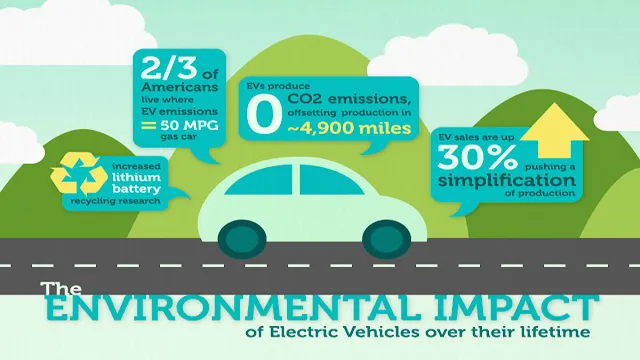
Reduces greenhouse gas emissions
Zero emissions are the ultimate goal for a cleaner and greener future. By reducing greenhouse gas emissions, we can protect our planet and its inhabitants from the disastrous effects of climate change. The good news is that many industries are embracing sustainability practices that help reduce emissions.
For example, the transportation industry is transitioning to electric vehicles and alternative fuels that emit zero emissions. Similarly, renewable energy sources like wind and solar power produce electricity without generating harmful emissions. All of these efforts are crucial in the fight against climate change.
While it may take some time for us to achieve zero emissions across all industries, every little step we take towards this goal will help create a brighter future for generations to come.
Reduced Noise Pollution
One of the most significant benefits of electric cars for the environment is their ability to reduce noise pollution. You might not think about it, but conventional gasoline-powered vehicles are a significant source of noise pollution, especially in cities and busy highways. However, electric vehicles operate quietly, with no internal combustion engine or exhaust system noise.
This attribute makes them the perfect fit for urban areas, where reducing noise levels can improve the quality of life for residents. Moreover, the reduced noise pollution from electric cars can have a positive impact on wildlife, allowing them to carry out their natural behaviors and breeding patterns undisturbed. In short, electric cars not only help to lower carbon emissions that contribute to climate change, but they also improve the overall environmental conditions by decreasing the noise pollution levels.
Quieter engines reduce noise pollution
Noise pollution is a growing concern in many urban areas, but quieter engines could be the solution. With many transportation systems, from cars to airplanes, being major contributors to noise pollution, advancements in quieter engine technology could make a big difference. Think about how pleasant it is when you’re walking down a street and a quiet electric car drives by, versus being blasted by the noise of a loud motorcycle or car engine.
Quieter engines not only reduce noise pollution, but can also improve the quality of life for residents living near busy roads or airports. By reducing noise levels, we can create a more peaceful and enjoyable environment for everyone. Plus, using quieter engines means less disruption to wildlife and natural habitats, which could have significant ecological benefits.
It’s time to invest in quieter engine technology for a quieter, more sustainable future.
Reduced engine noise improves quality of life
Reduced engine noise is not only a boon to car owners but also to the environment and our quality of life. Noise pollution has become a pervasive problem in urban areas where vehicular traffic is high. Cars are a significant contributor to noise pollution, and studies have shown that high levels of noise can cause stress, anxiety, and several other health problems.
By reducing engine noise, car manufacturers can help mitigate noise pollution and make our lives better. Quieter engines can also translate to better driving experiences, without the need to use earplugs or headphones while behind the wheel. In summary, reduced engine noise not only improves our health but also enhances our driving experience while reducing noise pollution.
Energy Efficiency
Electric cars are increasingly gaining popularity as more consumers are becoming more environmentally conscious. One of the primary benefits of electric cars is their positive impact on the environment. Unlike traditional cars that run on fossil fuels, electric cars are powered by electricity, which reduces carbon emissions and pollution.
In addition, the production of electric cars emits fewer harmful gases than gasoline vehicles. By using renewable energy sources to charge electric cars, such as solar panels or wind turbines, the environmental benefits are even greater. Overall, electric cars provide a more energy-efficient and sustainable alternative to traditional gasoline cars, and they have the potential to play a significant role in reducing carbon emissions and improving air quality in the future.
Electric cars are more energy efficient than gas-powered cars
When it comes to energy efficiency, electric cars are the clear winner over traditional gas-powered cars. This is because electric cars are powered by electricity, which is a much more efficient form of energy than gasoline. In fact, electric cars can convert up to 80% of the energy stored in their batteries into motion, while gas-powered cars can only convert around 20% of the energy stored in gasoline into motion.
This means that electric cars use less energy to travel the same distance as a gas-powered car, making them a more environmentally friendly and cost-effective option. Not only that, but electric cars also require less maintenance than gas-powered cars, as they have fewer moving parts and don’t require oil changes. So, if you’re looking for a more energy-efficient and cost-effective way to get around, an electric car may be the perfect choice for you.
Regenerative braking recycles energy to reduce waste
Regenerative braking is a game-changing technology that is revolutionizing the way we think about energy efficiency. It works by recycling kinetic energy that is normally lost as heat during braking and using it to recharge the battery or power an electric motor. This results in less wasted energy and a more sustainable way of driving.
When the brakes are applied, the system converts the vehicle’s kinetic energy into electrical energy, which is stored in the battery or used to power the vehicle’s electrical components. This technology not only reduces fuel consumption and emissions but also improves the lifespan of braking components. The best part? Regenerative braking is not just for electric vehicles; it can also be implemented in hybrid cars and even bicycles.
So, the next time you hit the brakes, remember that you could be doing your part for the planet by recycling that energy instead of wasting it.
Renewable Energy
Electric cars have numerous benefits for the environment. One of the most significant advantages is their ability to reduce greenhouse gas emissions. Unlike traditional gasoline-powered vehicles, electric cars do not release harmful pollutants into the atmosphere.
This means that they help to lower the levels of carbon dioxide, nitrogen oxides, and particulate matter that contribute to air pollution and climate change. Additionally, electric cars can be powered by renewable energy sources such as solar or wind power and are more energy-efficient than gasoline-powered cars, reducing the overall demand for fossil fuels. The use of renewable energy to power electric cars can further reduce the emissions of greenhouse gases, making them an excellent environmentally-friendly option.
The benefits of electric cars for the environment are clear, making them a fantastic option for eco-conscious drivers looking to reduce their carbon footprint.
Using renewable energy sources with electric cars can further reduce environmental impact
Renewable energy sources offer a sustainable solution for powering electric cars that can significantly reduce their environmental impact. Unlike fossil fuels, renewable energy sources such as solar, wind, and hydroelectric power produce no emissions when used to charge electric cars. The use of renewable energy can also help reduce our dependence on non-renewable resources, which are finite and have a finite impact on the environment.
Renewable energy-powered electric cars can also be more cost-effective in the long run, providing a reliable, low-cost energy source that can be used to charge batteries for years to come. It’s important to note that renewable energy sources are not yet available or affordable for everyone, but as more and more people adopt these technologies, we’ll be able to reduce our impact on the environment while enjoying the benefits of sustainable energy.
Conclusion
In conclusion, electric cars are the superheroes of the automotive industry, coming to the rescue of our planet. Not only do they significantly reduce carbon emissions and improve air quality, but they also decrease noise pollution and promote energy efficiency. As we strive to create a sustainable future, electric cars offer a practical and stylish solution that benefits both the environment and our wallets.
So, if you haven’t already hopped on the electric vehicle bandwagon, it’s time to plug-in and join the eco-friendly revolution. Trust us, Mother Earth will thank you.”
FAQs
How do electric cars benefit the environment?
Electric cars have zero emissions, meaning they do not produce harmful pollutants that contribute to air pollution and climate change. This is in contrast to traditional gasoline-powered cars, which release carbon dioxide and other pollutants into the air.
Are electric cars more energy-efficient than gas cars?
Yes, electric cars are much more energy-efficient than gas cars. They convert a higher percentage of the stored energy in their batteries into motion, while gas cars lose a substantial portion of the energy stored in gasoline as heat.
Can electric cars help reduce our reliance on fossil fuels?
Yes, electric cars can reduce our reliance on fossil fuels. By using renewable sources of energy such as wind and solar power to charge their batteries, electric cars can reduce the need for petroleum and other fossil fuels.
What are some of the financial benefits of electric cars for the environment?
Electric cars can help reduce harmful emissions, which can lead to better air quality and public health benefits. They can also reduce our dependence on foreign oil and can help stabilize oil prices. Additionally, electric cars can save their owners money in the long run, as they require less maintenance and have lower fuel costs than traditional cars.
